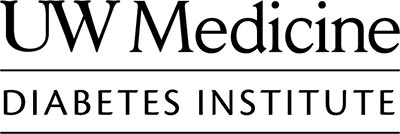Jay Heinecke, MD
Email: heinecke@uw.edu
- Karasinski Endowed Chair in Metabolic Research
- Professor of Medicine, Division of Metabolism, Endocrinology and Nutrition
- Director, Quantitative and Functional Proteomics Core, UW Diabetes Research Center
- Home Department Website: https://endocrinology.uw.edu/
- Diabetes Research Center Website: http://depts.washington.edu/diabetes/
Dr. Heinecke earned his MD degree from Washington University in St. Louis in 1981 and came to the UW for a residency in internal medicine, followed by postdoctoral fellowships in the Division of Metabolism, Endocrinology and Nutrition and the Department of Biochemistry. He joined the faculty at Washington University in St. Louis in 1991 as Assistant Professor of Medicine was subsequently promoted to Professor of Medicine and Professor of Molecular Biology and Pharmacology.
In 2002, Dr. Heinecke was recruited back to the UW to take his current position as Professor of Medicine. He also directs the Mass Spectrometry Resource in the Department of Medicine and is an attending physician at UW Medical Center and a member of the Molecular and Cellular Biology Graduate Program. He holds the Karasinski Chair in Metabolic Research.
Dr. Heinecke has received numerous awards, including the American Heart Association’s Jeffrey M. Hoeg Arteriosclerosis, Thrombosis and Vascular Wall Biology Award in 2001 and an Excellence in Mentoring Award from the Washington University Graduate Student Senate in 2002.
Research Interests
The major focus of research in the Heinecke laboratory is to understand the role of HDL, apolipoproteins and lipoproteins in macrophage biology and in the pathogenesis of atherosclerosis-the major cause of cardiovascular disease. Our efforts are directed towards identifying specific proteins, lipoproteins and macromolecular complexes that are central players in cholesterol metabolism and macrophage inflammation. We also have a strong interest in the structure and function of HDL and APOA1, HDL’s major protein. Over the past five years translational studies investigating the role of lipoproteins and apolipoproteins in the pathogenesis of cardiovascular disease in diabetic patients has become a major focus of the group.
How can this research help people with diabetes?
Our long-term goal is to determine how dysfunctional HDL promotes cardiovascular disease. Identifying specific mechanisms that modify HDL in ways that impair its function may have important implications for understanding and developing therapies that decrease the risk of cardiovascular disease.

